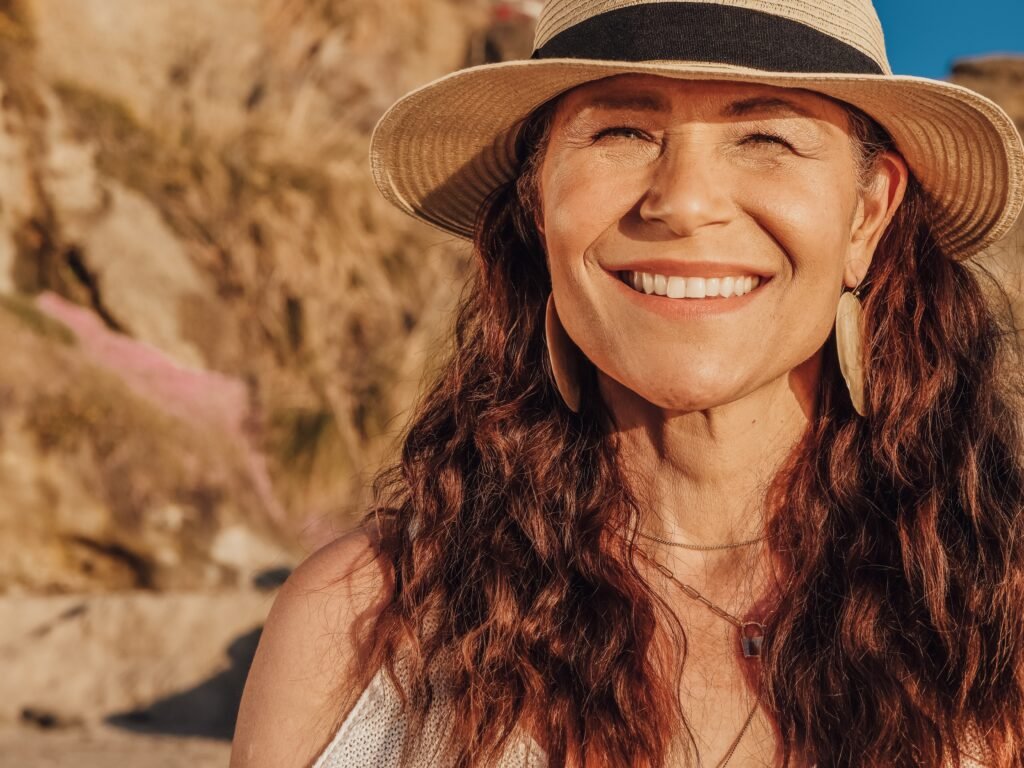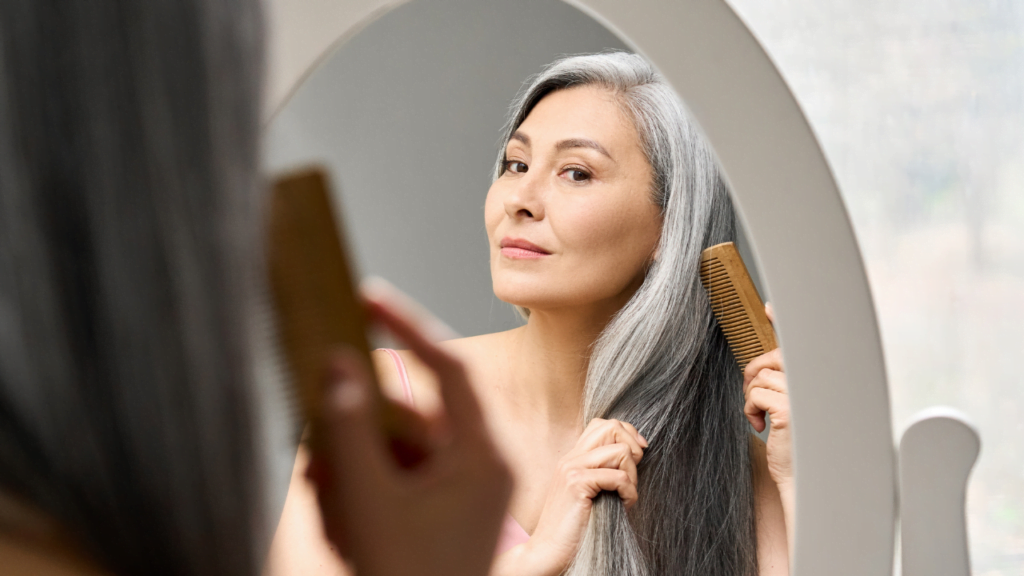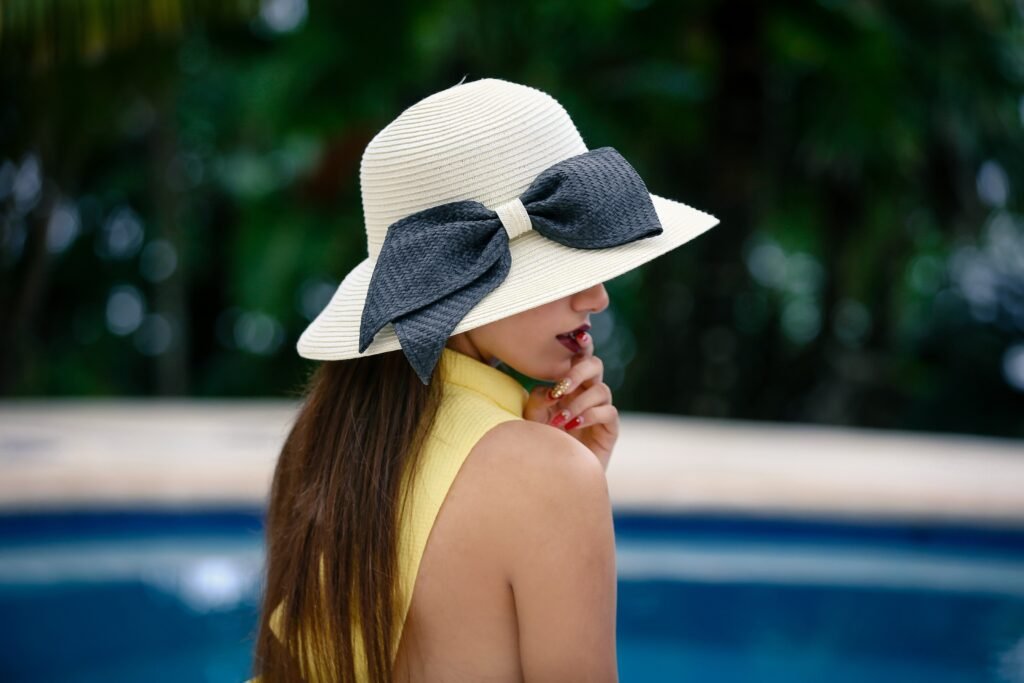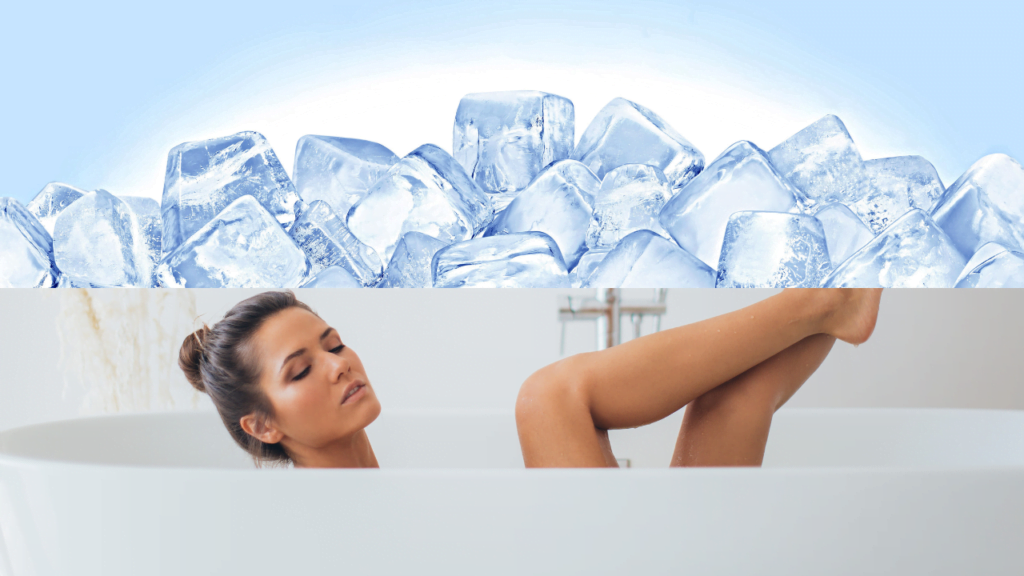“How to Keep Your Hair Healthy and Vibrant as You Age” is a question many grapple with as the years tick by.
Age might bring wisdom, but it also presents challenges for our once lustrous locks.
Yet, just as the sun continues to shine bright year after year, there’s no reason our hair shouldn’t mirror that radiance.
With the right knowledge and practices, maintaining hair health and vibrancy is not only achievable but becomes a testament to one’s timeless beauty.
Let’s explore the secrets behind ageless, captivating hair.
Some of the links in this post are affiliate links. This means if you click on the link and purchase the item, I will receive an affiliate commision at no extra cost to you. All opinions remain my own. Read more on our Privacy Policy page.
Why is Skincare important
Understanding Hair Aging
Hair Structure and Growth Cycle
To effectively address hair aging, it’s crucial to understand the structure and growth cycle of our hair. Hair is composed of a protein called keratin, produced by hair follicles embedded in the scalp. Each strand of hair undergoes a cycle consisting of three phases: the anagen (growth) phase, the catagen (transition) phase, and the telogen (resting) phase. With aging, the hair growth cycle gradually slows down, resulting in shorter anagen phases and longer telogen phases, which leads to a reduction in overall hair volume and thickness.
Common Hair-Related Issues with Aging
As we age, various hair-related challenges arise. Hair thinning or loss, known as androgenetic alopecia, affects both men and women. Decreased production of natural oils by the scalp leads to dryness and lackluster hair. Changes in pigmentation result in the emergence of gray or white hair, replacing our natural color. Additionally, hair strands become more susceptible to damage and breakage due to reduced elasticity and strength.

Factors Contributing to Hair Aging
- Genetics: Inherited traits can influence hair aging, such as predisposition to hair loss or thinning.
- Hormonal Changes: Hormonal fluctuations during menopause, especially in women, can affect hair health and contribute to aging.
- Environmental Factors: Sunlight exposure, pollution, and exposure to harsh chemicals can accelerate hair aging.
- Lifestyle Choices: Nutrition, smoking, and stress levels can impact the health and deterioration of hair over time.
Understanding the structure, growth cycle, common issues, and contributing factors of hair aging forms the foundation for effective hair care strategies. By comprehending these aspects, we can adopt targeted approaches to maintain and enhance the health and vibrancy of our hair as we age.
Aging Hair: Recognizing Signs, Care, and Addressing Hair Loss
Proper Hair Care Routine – Healthy Hair as You Age
Regular Washing and Conditioning
Establishing a consistent washing and conditioning routine is vital for maintaining the health and vibrancy of your hair as you age. It helps eliminate dirt, oil, and product buildup, while providing nourishment and moisture to the hair strands.

Choosing the Right Shampoo and Conditioner
The key to effective hair care lies in selecting the ideal shampoo and conditioner that cater to your specific hair type and concerns. Look for products formulated with targeted ingredients that address your needs. For instance, if you have dry or damaged hair, opt for moisturizing or repairing formulas. If you deal with oily hair, choose clarifying or balancing options. By reading labels and understanding ingredients, you can make informed decisions.
Recommended Shampoo and Conditioner: ➡ Volumizing Biotin Shampoo and Conditioner Set – Sulfate Free Biotin Hair Conditioner for Dry Hair Damage and Biotin Shampoo B Complex with Keratin Jojoba and Argan Oil for Scalp and Hair treatment

Frequency of Washing
Finding the right washing frequency is essential and varies depending on factors like your hair type, lifestyle, and personal preference. While some individuals may require daily washing, others may find that washing every other day or a few times a week suffices. Avoid excessive washing as it can strip away the hair’s natural oils, causing dryness and damage. On the other hand, infrequent washing can lead to scalp buildup and lackluster hair. Experiment with different frequencies to determine what works best for your hair.
By incorporating a regular washing and conditioning routine with the appropriate products, you can ensure that your hair remains clean, nourished, and resilient, promoting its health and vibrancy as you embrace the aging process.
Protecting Hair from Heat and Sun Damage – Healthy Hair as You Age

Limit Heat Styling Tools
Excessive use of heat styling tools can harm your hair, causing dryness, brittleness, and breakage. To safeguard the health and vibrancy of your hair, reduce the frequency of heat styling and embrace more natural hairstyles. When you do use heat tools, opt for lower heat settings and always apply a reliable heat protectant to shield your hair from damage.
Use Heat Protectants
Prioritize the use of heat protectants to defend your hair against the damaging effects of heat styling. These products create a protective barrier, minimizing the impact of high temperatures on your strands. Look for heat protectants that contain silicone or other effective heat-protective ingredients. Apply the protectant evenly through your hair, paying special attention to the ends, which are more prone to damage.
Wear Hats or Scarves When Exposed to the Sun
Extended exposure to the sun’s UV rays can result in hair dryness, color fading, and weakened strands. Shield your hair by wearing hats, caps, or scarves whenever you are out in the sun. These accessories provide shade and reduce direct exposure to harmful UV radiation. Additionally, consider using UV-protective hair products to provide an extra layer of defense against sun damage.
Get the best supplement for hair loss here FOLIFORT HAIR GROWTH – STOP HAIR LOSS & GREYING
Gentle Handling and Styling Techniques – Healthy Hair as You Age
Avoiding Excessive Brushing or Combing
Excessive brushing or combing can result in hair breakage and damage. To ensure the health of your hair, it’s important to minimize over-brushing or combing. Instead, focus on gentle detangling using your fingers or a wide-toothed comb when needed. Begin from the ends and work your way up, paying attention to any knots or tangles.
Using Wide-Toothed Combs or Brushes with Soft Bristles

Recommended: Belula 100% Boar Bristle Hairbrush Set. Soft Natural Bristles for Thin and Fine Hair. Restore Shine And Texture.
Choose wide-toothed combs or brushes with soft bristles to reduce hair breakage and prevent unnecessary tension. These tools help to minimize friction and prevent snagging during detangling or styling. Opt for brushes with natural fibers or synthetic bristles specifically designed to be gentle on your hair.
Minimizing Hairstyles that Put Strain on the Hair
Some hairstyles, like tight ponytails, braids, or buns, can exert excessive strain on your hair, leading to breakage. Reduce the frequency of such styles and opt for looser hairstyles that distribute tension more evenly. Embrace protective hairstyles that minimize manipulation and reduce stress on the hair.
Avoiding Harsh Chemicals and Treatments
Reducing the Use of Dyes and Chemical Treatments:
It is important to limit the use of dyes and chemical treatments to protect the health and integrity of your hair. These harsh chemicals can strip away natural moisture, resulting in dryness, damage, and potential breakage. Embrace your natural hair color or explore gentler alternatives such as semi-permanent dyes or highlighting techniques that involve less chemical processing.
Opting for Natural or Organic Hair Products:
Opt for natural or organic hair products to minimize exposure to harmful chemicals. Look for products that are sulfate-free, paraben-free, and formulated with natural ingredients. These gentle formulations help retain moisture, prevent scalp irritation, and promote overall hair health. Consider using organic shampoos, conditioners, and styling products that prioritize the use of nourishing and natural ingredients.
➡ USDA Organic Jojoba Oil (buy on amazon)
Nourishing Your Hair from Within – Healthy Hair as You Age
Balanced Diet for Hair Health
Nourishing your hair from within is essential to maintain its health and vibrancy as you age. A well-balanced diet provides the necessary nutrients that promote strong and beautiful hair.
Essential Nutrients for Healthy Hair:
Ensure your diet includes essential nutrients that support optimal hair health. These include protein, which aids in keratin production, the main component of hair. Additionally, vitamins such as vitamin A, vitamin E, and vitamin C are crucial for hair growth and scalp health. Don’t forget about essential omega-3 fatty acids, iron, zinc, and biotin.

Foods Rich in Vitamins, Minerals, and Proteins:
Incorporate foods rich in vitamins, minerals, and proteins into your diet. Opt for lean protein sources like fish, poultry, legumes, and nuts. Include vitamin-rich foods such as leafy greens, carrots, citrus fruits, and berries. Choose iron-rich options like spinach, lentils, and lean meats. Incorporate zinc-rich foods like oysters, seeds, and whole grains. Additionally, consider consuming biotin-rich foods like eggs, avocados, and nuts.
No.1 supplement for hair loss here FOLIFORT HAIR GROWTH – STOP HAIR LOSS & GREYING
Staying Hydrated
Importance of Water for Hair Hydration:
Adequate hydration is essential for maintaining optimal hair health. Water plays a vital role in keeping the hair hydrated and ensuring its moisture balance. When your body is dehydrated, it can impact the moisture levels in your hair, resulting in dryness, brittleness, and a lackluster appearance. Drinking enough water is key to promoting proper hair hydration, benefiting both your hair and overall well-being.
Recommended Daily Water Intake:
To support hair hydration and maintain your body’s functions, it is crucial to meet the recommended daily water intake. While the exact amount may vary based on factors like age, activity level, and climate, a general guideline is to aim for around eight glasses of water per day. However, individual hydration needs may differ, so it’s important to listen to your body’s signals and adjust accordingly. Pay attention to signs of dehydration, such as a dry mouth or dark urine, and increase your water intake as necessary.
Supplements for Hair Health – Healthy Hair as You Age
Get the best supplement for hair loss here FOLIFORT HAIR GROWTH – STOP HAIR LOSS & GREYING
Popular Supplements for Promoting Hair Growth and Strength
Certain supplements have gained popularity for their potential in promoting hair growth and strength. These supplements often contain essential nutrients like biotin, vitamin D, vitamin E, omega-3 fatty acids, and collagen. Biotin, specifically, is well-known for its role in supporting healthy hair growth. Other supplements such as iron, zinc, and keratin are also recognized for their positive effects on hair health. It’s important to note that individual responses to supplements may vary.
The Ultimate Guide: How to Slow Down Aging Naturally
Maintaining a Healthy Scalp – Healthy Hair as You Age
Regular scalp care routine
Gentle Scalp Massages to Stimulate Blood Circulation:
Integrating gentle scalp massages into your routine stimulates blood circulation in the scalp. Using your fingertips, apply light pressure and make circular motions. This technique enhances nutrient delivery to the hair follicles, supporting healthy hair growth. Scalp massages also help alleviate stress and tension, benefiting both your scalp and overall well-being.

Exfoliating the Scalp to Remove Buildup:
Regular scalp exfoliation is vital to eliminate buildup of dead skin cells, excess oil, and product residue. Utilize a gentle exfoliating scrub or a scalp brush designed for this purpose. With circular motions, gently massage the exfoliant onto your scalp, then rinse thoroughly. This practice unclogs hair follicles, improves scalp health, and promotes optimal hair growth.
By incorporating a consistent scalp care routine that involves gentle scalp massages and exfoliation, you can maintain a healthy scalp environment. This, in turn, supports healthy hair growth and overall hair health. Remember to perform scalp massages with care and choose appropriate exfoliating products tailored to your scalp’s needs. Prioritizing scalp care contributes to the vitality and well-being of your hair as you embrace the aging process.
Choosing the Right Hair Products for Your Scalp
Understanding Your Scalp Type
Before selecting hair products, it’s crucial to understand your unique scalp type. Take note of whether your scalp tends to be oily, dry, sensitive, or if you have specific concerns like dandruff or scalp irritation. This understanding allows you to choose products that cater to your specific needs, promoting a balanced and healthy scalp.
Using Scalp-Friendly Shampoos, Conditioners, and Styling Products
Opt for scalp-friendly hair products specially formulated for your scalp type. Look for gentle shampoos and conditioners that are free from harsh sulfates and designed to address your specific scalp concerns. Seek out products with soothing ingredients like aloe vera, tea tree oil, or chamomile to calm an irritated scalp. Additionally, select styling products that are lightweight, non-greasy, and won’t weigh down your hair or clog the follicles.
Recommended
Seeking Professional Help for Scalp Issues
Consulting a Dermatologist for Scalp Conditions or Excessive Hair Loss
When confronted with persistent scalp conditions or excessive hair loss, it is advisable to seek guidance from a dermatologist. These experts specialize in diagnosing and treating a wide range of scalp issues. They possess the knowledge and expertise to accurately assess your specific condition, conduct necessary tests, and provide personalized recommendations for effective treatment options. Relying on professional help ensures an accurate diagnosis and appropriate management of scalp conditions or hair loss concerns.
Get the best supplement for hair loss here FOLIFORT HAIR GROWTH – STOP HAIR LOSS & GREYING
How to Reverse Time: Exploring the Beauty of Joseon Skincare for Effective Anti-Aging
Stress Management and Lifestyle Factors
Effects of Stress on Hair Health
Stress can significantly affect hair health, particularly in relation to hair loss. Prolonged or excessive stress disrupts the natural hair growth cycle, leading to increased shedding or conditions like telogen effluvium and alopecia areata. Stress can also contribute to other hair-related issues such as dryness, brittleness, and a lackluster appearance. Recognizing the link between stress and hair health empowers you to take proactive measures in managing stress and minimizing its impact on your hair.

Stress Management Techniques
- Adopting effective stress management techniques is vital for maintaining healthy hair and overall well-being. Consider implementing the following strategies:
- Regular exercise: Engage in physical activity to reduce stress levels and improve blood circulation, benefiting the scalp and hair follicles.
- Practice relaxation techniques: Incorporate deep breathing, meditation, or yoga to alleviate stress and promote a sense of calm.
- Prioritize quality sleep: Make sleep a priority, as it plays a crucial role in stress management and hair health.
- Engage in enjoyable activities: Dedicate time to hobbies and activities that bring you joy and relaxation, helping to counteract stress and enhance emotional well-being.
- Seek support: Reach out to friends, family, or a support network to share your feelings and seek guidance during challenging times.
Healthy Lifestyle Habits for Healthy Hair as You Age
Regular Exercise to Improve Blood Circulation
Engaging in regular exercise is a valuable habit for promoting hair health, as it enhances blood circulation. Increased blood flow to the scalp nourishes the hair follicles, supporting healthy hair growth. Include activities like cardiovascular exercises, yoga, or brisk walks in your routine to improve blood circulation and foster optimal hair health.
Adequate Sleep for Hair Regeneration
Prioritizing adequate sleep is crucial for hair regeneration and overall well-being. During sleep, the body undergoes vital processes that include hair repair and restoration. Aim for 7-8 hours of restful sleep each night to provide ample time for proper hair growth, repair, and rejuvenation.
Avoiding Smoking and Excessive Alcohol Consumption
Avoiding smoking and limiting alcohol consumption are essential for maintaining vibrant hair. Smoking restricts blood vessels, impeding optimal blood flow to the scalp, while excessive alcohol intake can lead to nutritional deficiencies that impact hair health. Embrace a smoke-free lifestyle and consume alcohol in moderation to safeguard the vitality and well-being of your hair.

conclusion
Maintaining healthy and vibrant hair as you age requires a holistic approach to hair care. Here are the key points to remember:
- Understand the natural changes that occur in hair health and appearance with aging.
- Establish a comprehensive hair care routine, including regular washing, conditioning, and protection from heat and sun damage.
- Handle and style your hair with gentleness, avoiding excessive brushing and minimizing hairstyles that strain the hair.
- Choose hair products that are gentle and suitable for your scalp type, opting for natural or organic options whenever possible.
- Nourish your hair from within by maintaining a balanced diet rich in essential nutrients and staying hydrated.
- Seek professional advice if you experience scalp issues or excessive hair loss, and explore available treatments tailored to your needs.
- Manage stress through relaxation techniques, regular exercise, and seeking support when necessary.
- Adopt healthy lifestyle habits such as regular exercise, sufficient sleep, and avoiding smoking and excessive alcohol consumption.
The best supplement for hair loss here ➡ FOLIFORT HAIR GROWTH – STOP HAIR LOSS & GREYING
By embracing these practices and seeking professional advice when needed, you can ensure the health and vitality of your hair as you gracefully age. Prioritize a holistic approach to hair care, taking care of both the external and internal factors that contribute to healthy and vibrant hair.
FAQ – Healthy Hair as You Age
How do I keep my hair healthy till old age?
- To keep your hair healthy until old age, follow these tips:
- Maintain a balanced diet rich in nutrients that support hair health, such as protein, vitamins, and minerals.
- Regularly wash and condition your hair using gentle products suitable for your hair type.
- Protect your hair from heat and sun damage by limiting heat styling tools and wearing hats or scarves when exposed to the sun.
- Avoid harsh chemicals and treatments that can damage your hair.
- Handle your hair gently and minimize hairstyles that put strain on the hair.
- Stay hydrated by drinking an adequate amount of water daily.
- Incorporate stress management techniques into your routine, as stress can impact hair health.
2. How can I make my aging hair shiny?
- To make your aging hair shiny, try the following:
- Use moisturizing shampoos and conditioners to hydrate your hair and add shine.
- Apply a leave-in conditioner or hair oil to nourish and add glossiness to your hair.
- Limit the use of heat styling tools and use a heat protectant when styling.
- Incorporate a shine-enhancing hair mask or treatment into your hair care routine.
- Brush your hair gently with a soft-bristle brush to distribute natural oils and promote shine.
- Consider using products formulated specifically for enhancing shine and glossiness.
3.How can I make my aging hair look younger?
- To make your aging hair look younger, consider these tips:
- Opt for a flattering haircut and style that suits your face shape and hair type.
- Incorporate volumizing products, such as mousses or root-lifting sprays, to add body and fullness to your hair.
- Use products that promote hair elasticity and strength, such as those containing keratin or collagen.
- Experiment with hair color techniques that add depth and dimension, such as highlights or lowlights.
- Embrace hairstyles that create lift and movement, such as layered cuts or textured styles.
- Keep your hair well-moisturized to combat dryness and frizz, which can contribute to an aged appearance.
4. How can I keep my hair healthy at age 50?
- To keep your hair healthy at age 50 and beyond, follow these guidelines:
- Adjust your hair care routine to cater to any changes in hair texture, moisture levels, or scalp condition.
- Use products specifically formulated for mature hair, which often provide added moisture and nourishment.
- Regularly trim your hair to prevent split ends and maintain its health and shape.
- Incorporate deep conditioning treatments or hair masks into your routine to keep your hair well-hydrated.
- Protect your hair from environmental stressors, such as sun exposure and pollution, by using hats or protective styling.
- Maintain a balanced diet and stay hydrated to support overall hair health.

references: https://www.saga.co.uk/magazine/style-beauty/beauty/hair-care-for-the-over-50s, Your Guide To Aging, Thinning Hair: 5 Simple Tips: https://health.clevelandclinic.org/your-guide-to-aging-hair/







